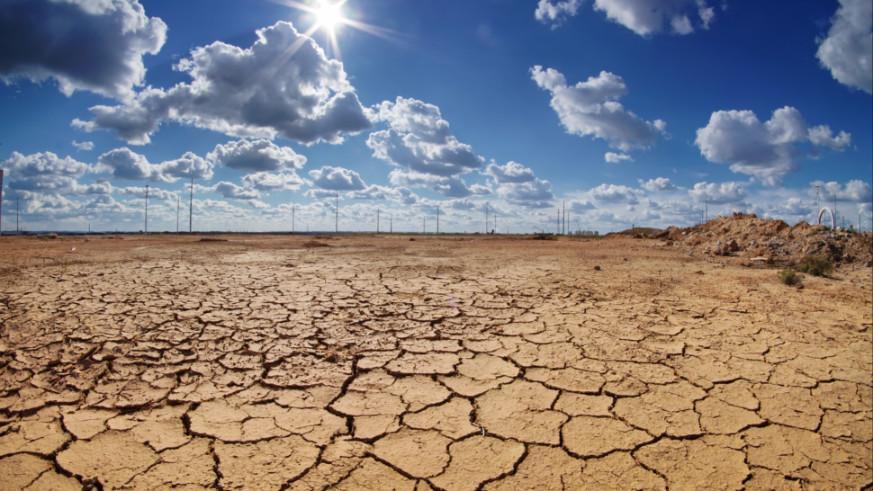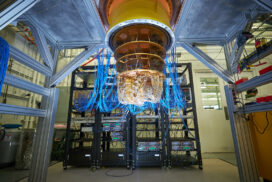Climate Change and Energy Security
Christian Egenhofer

Source: The New Times
Climate change is affecting more and more areas in our economies and daily life. This is no different for the military and collective security systems. Already there are signs of a ‘greening of NATO’ when it comes to core tasks. Climate change and the unfolding energy revolution will increasingly have a profound impact on geopolitics, going far beyond solar panels lighting our homes and powering vehicles including those used by the military.
The energy security context is rapidly changing
Traditionally the geopolitics of energy has been closely related to security. This goes back to the early 20th century with the motorization of war, starting with the UK decision to switch its navy from coal – available both domestically and abundantly across the globe – to oil. For most of the 20th century, the focus of energy security has been ‘uninterrupted supply’ of energy, i.e. oil at ‘affordable prices’. Earlier this century we experienced a new feature: the China demand shock. Too often it is forgotten that the US enthusiasm for a global climate change policy under President George Bush senior – leading to the adoption of the UN Framework Convention on Climate Change – has been the worry of a long-term ‘unsustainable’ energy demand.
The security of supply agenda has started to widen in the late 1990s, firmly including by now the security of rare earth and minor metals such as dysprosium, neodymium, praseodymium or terbium, which are required for example for wind turbines or cadmium, gallium, indium, selenium and tellurium germanium as essential parts for solar PV panels. Electricity infrastructure increasingly is being the backbone of the modern economies and defense structures.
Energy security has also become more and more influenced by the implications of global climate change and associated policies. Strong linkages to food security, water security and traditional hard security issues exist.
New industries, new threats
Whether turbines and photovoltaic panels are already on the verge of changing geopolitics forever as Adnan Z. Amin, the former Director-General of the International Renewable Energy Agency, believes, remains to be seen. Yet it is becoming increasingly evident, that climate policies will transform industrial and energy value chains.
The future energy systems will primarily be based on two energy carriers: electricity, produced by renewable sources, nuclear fission or possibly fusion and hydrogen, based on renewable energy or by using fossil fuels with carbon capture and storage or possibly pyrolysis. This will create new threats, yet also new opportunities.
Biomass-based liquid and gaseous fuels will remain in the mix, albeit marginally, due to constraints of physical availability. The military may actually benefit from this.
The new energy geopolitics
The current ‘energy space’ will see a breakdown of individual energy, i.e. fuel production of natural gas or oil. Instead sectors will be integrating, focusing on location-specific competitive advantages around electricity, hydrogen or biomass.
In geopolitics, megatrends become already visible. Rents from fossil fuels erode to the advantage of energy conversion, which essentially stands for technologies, including R&D and development, trade, recycling and reprocessing of so-called structural materials such as concrete, steel, plastic, aluminum or copper alongside rare earths and minor metals.
Novel energy spaces emerge around new infrastructures, production chains and industrial clusters linked to large wind parks, low-carbon hydrogen and carbon capture and storage infrastructure or mineral raw materials reprocessing facilities.
We should not forget about digital. A digital energy sector will be using only a fraction of fuels compared to an ‘analogue’ energy system, because it replaces its energy with technology. Yet at the same time, it is far more vulnerable, for example to cyber-attacks.
Energy security beyond energy
It is unclear and uncertain how these long-term trends will play out. But the simple days where security of supply mainly related to ‘physical availability’ and ‘price’ are gone for good, being replaced by a more complex and uncertain world being in constant flux. The sooner policy makers accept this, the better. Or put it differently, to date energy security is not a matter for energy ministers any longer.

Christian Egenhofer
Senior Research Fellow & Director of CPS Energy Climate House at the Centre for European Policy Studies in Brussels. He is Adjunct Professor at the College of Europe and the Paris School of International Affairs at SciencesPo, Paris. He has been member of NATO Task Force “SAS-118 (RTG-056), Enhancing Strategic Awareness of Energy Security – A Holistic Approach”.






